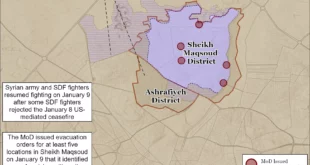The Turkish presidency has sent a memorandum to Parliament to extend the mission of the Turkish Navy in the Gulf of Aden, the Arabian Sea and the territorial waters of Somalia for an additional year, starting February 10, 2021.
It does not seem that Turkey will put an end to its destabilising agenda in Yemen and the Horn of Africa any time soon despite its narrative of de-escalation with Saudi Arabia and its desire to benefit from Gulf reconciliation.
Its intent was illustrated by the Turkish presidency’s decision to extend the duration of Turkey’s military presence in the region.
The Turkish presidency has sent a memorandum to parliament to extend the mission of the Turkish Navy in the Gulf of Aden, the Arabian Sea and the territorial waters of Somalia for an additional year starting February 10, 2021.
Political analysts said that Ankara follows two contradictory approaches in its relationship with Saudi Arabia. The first is based on flattery, showing good intent and going beyond the legacy of the Jamal Khashoggi crisis. The second consists of continuing to impose a fait accompli.
Analysts believe the decision to extend the mission of its forces in those areas is a reminder to Saudi Arabia that ongoing arrangements for reconciliation or de-escalating tensions do not mean that Turkey has relinquished its role in the Horn of Africa. It instead shows that it intends to make up in Yemen and Somalia for what it has lost in Sudan after being pushed out of the Suakin base.
Turkey previously announced its support for Gulf reconciliation and claimed that reconciliation would provide it with an opportunity to return to the region through the front door. But it has not taken any steps to show good faith, whether at the political level or in the media, especially on the ground through its network of relations in Yemen or the Horn of Africa.
Turkish support for groups and militias linked to the Muslim Brotherhood is one of the factors that have hindered the implementation of the Riyadh Agreement and the appeasement of tensions within Yemen’s “legitimacy” camp after the Saudi plan, which was aimed at expediting the Yemeni political settlement and promoting a formula there that ensures Riyadh’s national security goals and curtails Iranian influence in the strategically located region.
According to media reports, Turkey supports the continuation of chaos in Yemen until it secures a strategic foothold for itself in the region. It is also said to be behind the Brotherhood’s control of the oil-rich Shabwa governorate, which overlooks the Arabian Sea coast. It is also reported to have helped build the Qena Port project, which will give it greater freedom of movement to carry out its plans in Yemen and the region.
Ankara has also enhanced its intelligence presence in the region by sending security officers under various covers, including humanitarian missions, such as working for the Turkish Humanitarian Relief Foundation.
The matter does not stop at Yemen or at obstructing a political settlement there that would enable Riyadh to exit with the least possible damage. Turkish activities obstructing the interests of Saudi Arabia and other Gulf countries have become more obvious in the Horn of Africa, with a focus on securing positions in Somalia and Djibouti.
Political analysts say that the Turks aim to control the ports of Bab al-Mandeb, including the ports of Djibouti and Berbera in the Republic of Somaliland and the port of Mogadishu, making it easier for them to control imports and exports from the Horn of Africa. This is seen as a threat to the interests of Gulf countries, which have sought in recent years to develop relations with countries of the region.
Turkey has established a large military base in the Somali capital, Mogadishu, to train regular soldiers. The base, which has cost about fifty million dollars to build, according to sources, can house and train about 1,500 soldiers at any one time. The base area extends over four square kms, and can accommodate naval vessels and military aircraft as well as commando units.
Turkey provides arms and equipment to the forces it trains in Somalia. But under the pretext of training, it works on expanding its influence there and exploiting the country’s riches.
In parallel, Ankara is working to control vital sites in Djibouti based on providing generous economic support, encouraging businessmen to contribute to the Greater Industrial Zone there, and seeking to expand its soft power through educational and religious programmes.
Analysts say Turkey’s goal is to show its ability to contain the losses that Ankara has suffered due to President Recep Tayyip Erdogan’s policies, which led to escalation and strained his country’s relations with both the West and the Gulf. They see the Turkish leader as now trying to make up for his policies’ shortcomings through a deceptive narrative that does not require him to make any any concessions.
 Eurasia Press & News
Eurasia Press & News


